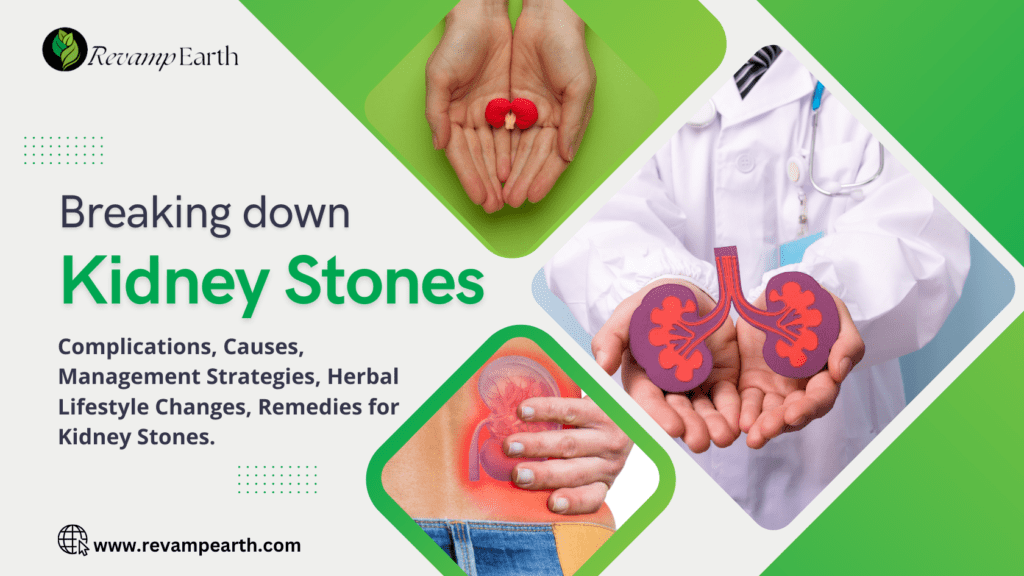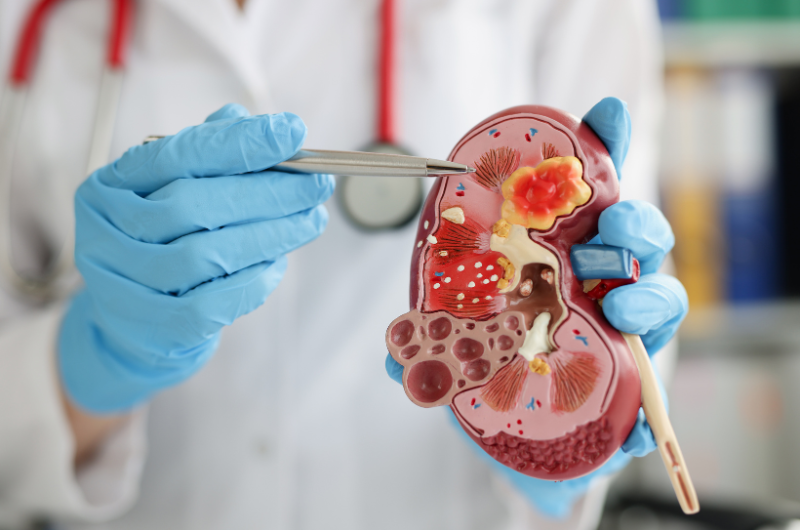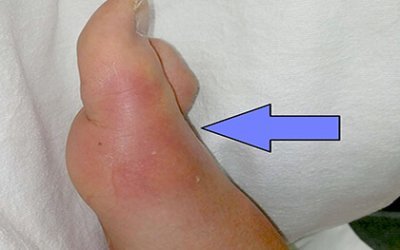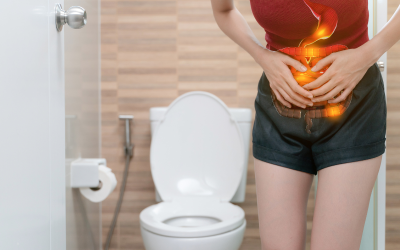Breaking Down Kidney Stones: Proven Remedies For Relief

Welcome to our detailed exploration of kidney stones – a common issue causing pain and potential complications for many. Kidney stones, or nephrolithiasis, are tiny crystal deposits formed in the kidneys. In this guide, we’ll uncover the reasons behind kidney stones, potential issues they can bring, effective ways to manage them, and the use of natural solutions.
Kidney stones form when substances like calcium, oxalate, uric acid, or cystine in our urine become too concentrated and turn into crystals. Dehydration, diet choices, and genetics can all play a role in their development.
Some kidney stones don’t show symptoms, but others can cause significant problems. The primary concern is when stones block the normal flow of urine, leading to intense pain. Larger stones can get stuck, causing discomfort and potential complications like urinary tract infections, kidney damage, or chronic kidney disease.
In this journey through kidney stones, we aim to empower you with straightforward information. Stay with us as we navigate through the details of managing kidney stones, sharing practical tips and insights for optimal kidney health and overall well-being.
What are Kidney Stones?
Kidney stones are solid deposits that form in the kidneys when certain substances in the urine, such as calcium, oxalate, and uric acid, become highly concentrated. These crystals can join together to create stones of varying sizes. While some stones may pass through the urinary tract unnoticed, others can lead to severe pain and complications.
Complications of Kidney Stones :
Kidney stones can lead to various complications, particularly if they cause obstruction or if they are left untreated. Some of the potential complications associated with kidney stones include:
Intense Pain: One of the most common complications of kidney stones is severe pain, typically experienced as the stone passes through the urinary tract. The pain often occurs suddenly and can be felt in the back, side, lower abdomen, or groin.
Urinary Tract Infections (UTIs): Obstructive stones can impede the normal flow of urine, creating a stagnant environment in the urinary tract. This stagnant urine can become a breeding ground for bacteria, leading to urinary tract infections. UTIs can cause symptoms such as pain during urination, frequent urination, and fever.
Obstruction of Urinary Flow: Larger stones or stones that get lodged in the urinary tract can obstruct the normal flow of urine. This obstruction can lead to a buildup of pressure in the affected kidney, causing pain and potential damage to the kidney tissue.
Hydronephrosis: Persistent obstruction of urine flow can cause the affected kidney to swell, a condition known as hydronephrosis. This can lead to further pain and, if left untreated, can result in long-term damage to the kidney.
Kidney Damage: Prolonged obstruction, recurrent infections, or large stones can contribute to kidney damage over time. Chronic kidney damage may lead to decreased kidney function and an increased risk of developing chronic kidney disease.
Recurrent Stones: Individuals who have experienced kidney stones are at an increased risk of developing additional stones in the future. Without preventive measures, recurrent stones can lead to ongoing discomfort and complications.
Systemic Inflammation: In some cases, kidney stones can trigger an inflammatory response in the body. This may contribute to systemic inflammation, potentially impacting other organs and systems.
Chronic Kidney Disease (CKD): Long-term complications of kidney stones, especially if accompanied by repeated episodes or untreated underlying conditions, can contribute to the development of chronic kidney disease. CKD is characterized by a gradual loss of kidney function over time.
It’s crucial to seek medical attention if you suspect you have kidney stones or if you are experiencing symptoms such as severe pain, blood in the urine, or signs of infection. Timely diagnosis and appropriate management can help prevent complications and minimize the impact of kidney stones on overall health.
Causes of Kidney Stones:
Kidney stones develop when certain substances in the urine, such as calcium, oxalate, and uric acid, become highly concentrated and form solid crystals. These crystals can aggregate to create stones. The specific causes of kidney stones can vary, but common factors include:
Dehydration: Insufficient water intake can lead to concentrated urine, making it easier for crystals to form and join together to create stones.
Dietary Factors:
High Calcium Intake: While calcium is essential for bone health, excessive intake through supplements or certain foods can contribute to stone formation.
High Oxalate Intake: Foods high in oxalate, such as beets, nuts, chocolate, and some leafy greens, can increase the risk of calcium oxalate stones.
High Sodium (Salt) Intake: A diet high in salt can lead to increased calcium in the urine, promoting stone formation.
Genetic Predisposition: Some individuals may have a genetic predisposition to forming kidney stones. A family history of kidney stones can increase the likelihood of developing them.
Medical Conditions:
Hypercalciuria: Excessive calcium in the urine.
Hyperoxaluria: Elevated levels of oxalate in the urine.
Hyperuricosuria: High levels of uric acid in the urine.
Cystinuria: An inherited condition causing the buildup of cystine in the urine.
Certain Medical Treatments: Some medical treatments, such as certain diuretics and antacids containing calcium, can increase the risk of stone formation.
Obesity: People with a higher body mass index (BMI) may be at an increased risk of developing kidney stones.
Gastrointestinal Disorders: Conditions that affect the absorption of calcium and other substances in the intestines, such as inflammatory bowel disease or gastric bypass surgery, can contribute to stone formation.
Urinary Tract Infections (UTIs): Infections that lead to changes in urine composition can contribute to the formation of certain types of stones.

Management Strategies:
The management of kidney stones involves a combination of lifestyle changes, medications, and, in some cases, medical procedures. The specific approach depends on factors such as the size, type, and location of the stones, as well as the individual’s overall health. Here are common management strategies for kidney stones:
Hydration: Adequate fluid intake is crucial for preventing the formation of kidney stones. Drinking plenty of water helps dilute the concentration of minerals in the urine, reducing the risk of crystal formation. Aim for at least 8-10 glasses of water per day, and more if you are physically active or live in a hot climate.
Dietary Changes:
Low Sodium Diet: Reduce your intake of salt, as high sodium levels can lead to increased calcium in the urine.
Calcium-Rich Diet: Maintain a diet with adequate calcium, as low calcium intake may increase the risk of stone formation. Consider obtaining calcium from dietary sources rather than supplements.
Limit Oxalate-Rich Foods: If you tend to develop calcium oxalate stones, consider reducing your consumption of oxalate-rich foods such as beets, nuts, chocolate, and certain leafy greens.
Moderate Protein Intake: Limit the intake of animal proteins, as they can increase the levels of uric acid and calcium in the urine, contributing to stone formation.
Medications:
Pain Management: Over-the-counter or prescription pain medications can help manage the pain associated with passing kidney stones.
Alpha Blockers: These medications can relax the muscles in the ureter, making it easier for stones to pass.
Thiazide Diuretics: In some cases, these medications may be prescribed to reduce the risk of calcium-based stone formation.
Medical Expulsion Therapy (MET): This involves using medications to facilitate the passage of stones. Alpha-blockers, such as tamsulosin, are commonly used in MET.
Extracorporeal Shock Wave Lithotripsy (ESWL): This non-invasive procedure uses shock waves to break larger stones into smaller fragments, making them easier to pass.
Ureteroscopy: In this procedure, a thin tube with a camera is inserted through the urethra and bladder to directly visualize and remove or fragment stones in the ureter or kidney.
Surgery: In some cases, especially for larger stones or if other methods are unsuccessful, surgical procedures such as percutaneous nephrolithotomy (PNL) may be necessary to remove or break up the stones.
Exploring Herbal Remedies
Holy Basil: In the case of renal stone, one tablespoon of juice of basil leaves with one teaspoon of honey, if taken regularly for six months, will expel them via the urinary tract. Know more about Holy Basil remedies.
Drumstick: Mix 1/2 cup of leaf juice with 1/2 cup of carrot juice and drink once daily.
Ginger: Known for its anti-inflammatory properties, ginger may help reduce inflammation in the kidneys. Additionally, it has potential diuretic effects. It can be included in daily diet. Know more about Ginger Remedies.
Chanca Piedra/ Gale of the wind/ Bhumi Amla (Phyllanthus niruri): Also known as “stonebreaker,” Chanca Piedra has a long history in traditional medicine for treating kidney stones. Some studies suggest that it may help inhibit the formation and growth of kidney stones and assist in their expulsion.
Grind the whole plant along with its leaves and roots and make 1 tablespoon paste. Make 2 tablespoons paste of Bermuda grass. Mix with one cup of buttermilk and take every morning.
Aloe Vera Juice: Aloe vera is believed to have detoxifying properties and may help in maintaining kidney health. Extract the juice and mix with some butter, powder of tail pepper, and honey. Eat it once daily. Know more about Aloe vera remedies.
It is important to use aloe vera products specifically designed for internal consumption and consult with a healthcare professional.
Always remember that the effectiveness of herbal remedies can vary, and individual responses may differ. It’s crucial to consult with your healthcare provider before trying any herbal supplements, especially if you are taking medications or have pre-existing health conditions. Additionally, herbal remedies should be used as part of a comprehensive treatment plan that includes proper medical care, lifestyle modifications, and medication adherence.
References
- Tilahun Alelign and Beyene Petros. (2018) Kidney Stone Disease: An Update on Current Concepts. National Library of Medicine. View
- Zhu Wang, Ying Zhang, Jianwen Zhang, Qiong Deng, Hui Liang. (2021) Recent advances on the mechanisms of kidney stone formation (Review). International Journal of Molecular Medicine. View
- H.K.Bakhru (1992) Herbs That Heal: Natural Remedies for Good Health. Orient Paperbacks. Delhi, India.
- T.V.Sairam (1999) Home Remedies Vol-II: A Handbook of Herbal Cures for Common Ailments. Penguin Books India.
Dos
Stay Hydrated:
Do drink plenty of water: Adequate fluid intake is crucial to prevent the concentration of minerals in the urine, reducing the risk of stone formation. Aim for at least 8-10 glasses of water per day.
Dietary Modifications:
Do adopt a balanced diet: Include a variety of fruits, vegetables, and whole grains in your diet.
Do consult with a dietitian: If you have specific types of kidney stones, work with a healthcare professional or dietitian to tailor your diet to your needs.
Limit Sodium Intake:
Do reduce salt intake: A low-sodium diet can help prevent an increase in calcium in the urine, lowering the risk of stone formation.
Calcium Intake:
Do get enough calcium: Maintain a diet with adequate calcium, preferably from dietary sources rather than supplements.
Moderate Protein Intake:
Do consume proteins in moderation: Limit animal protein intake to avoid an increase in uric acid and calcium levels in the urine.
Medical Follow-Up:
Do attend regular check-ups: Keep regular appointments with your healthcare provider to monitor your kidney health and address any concerns.
Lifestyle Changes:
Do maintain a healthy weight: Obesity is a risk factor for kidney stones, so adopting a healthy lifestyle can help reduce this risk.
Don’ts
Avoid Dehydration:
Don’t neglect fluid intake: Avoid becoming dehydrated, as concentrated urine increases the likelihood of crystal formation.
Limit Oxalate-Rich Foods:
Don’t consume excessive oxalate-rich foods: If you are prone to calcium oxalate stones, limit foods high in oxalate, such as beets, nuts, chocolate, and certain leafy greens.
Watch Sodium Intake:
Don’t consume excessive salt: High sodium intake can contribute to an increase in calcium in the urine.
Limit Animal Proteins:
Don’t consume excessive animal proteins: High intake of proteins from meat and dairy products can increase the risk of stone formation.
Avoid Excessive Calcium Supplements:
Don’t take excess calcium supplements: While calcium is essential, excessive supplementation can contribute to stone formation.
Don’t Ignore Symptoms:
Don’t ignore symptoms: If you experience symptoms such as severe pain, blood in the urine, or signs of infection, seek prompt medical attention.
Avoid High-Oxalate Diets:
Don’t follow excessively restrictive diets: Completely avoiding high-oxalate foods without professional guidance may not be necessary and could lead to nutritional imbalances.
Send Us A Message
FAQs
- Symptoms of kidney stones can include severe pain in your side and back, below the ribs; pain that radiates to your lower abdomen and groin; pain that fluctuates in intensity; blood in your urine; and nausea or vomiting. You may also experience frequent urination or a burning sensation during urination.
- Kidney stones can form when your urine contains high levels of certain substances, such as calcium, oxalate, and uric acid, which can combine to form stones. Low levels of certain substances that normally inhibit stone formation can also contribute. Factors such as dehydration, diet, obesity, and certain medical conditions can increase the risk of developing kidney stones.
- Kidney stones are often diagnosed through imaging tests such as a CT scan, which can show the size and location of the stones, or an ultrasound. Your doctor may also order urine tests to check for substances that could contribute to stone formation.
- To prevent kidney stones, drink plenty of water to stay hydrated, which helps dilute your urine and flush out potential stone-forming substances. Limiting the intake of foods high in oxalate (such as spinach, nuts, and tea) and reducing salt and animal protein intake may also help. Talk to your doctor for personalized recommendations based on your risk factors.














